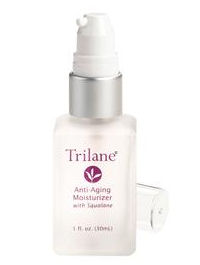| Skin health is a popular area of concern for many people in the beauty community. One growing trend is the notion that skin health doesn't merely come from a tube of cream or a bottle of lotion, but from all of the nutrients we consume, and the activities we take part in. It becomes a holistic concept that draws from all areas of our lives.
There are quite a few different vitamins and minerals that, after research studies, have been shown to have quite a significant effect on the health and appearance of our skin, primarily in the areas of suppleness and inner structure.
One of these is Vitamin E – long known for its benefits for heart health, this antioxidant also can scrub away the damage that the sun wreaks on our skin. A daily regimen of 400 international units has been shown to slow down the body's creation of the cells that make cancer, and mitigate the damage from sun on the skin. Vitamin E also adds suppleness to the skin, which can help get rid of wrinkles. One word of warning – don't go over 400 international units each day – larger doses of Vitamin E can do more harm than good.
Another is Vitamin C – and if you have C and E together in a lotion, the protection from solar damage is off the charts. Here's how Vitamin C helps your skin – it repairs the damage that free radicals have wrought by consuming elastin and collagen. Vitamin C helps to replenish those, reversing the signs of aging. Supplements are a good form of Vitamin C (up to 1,000 mg each day), but you can also get Vitamin C by consuming vegetables and citrus fruits.
Vitamin K is perhaps best known for helping your blood clot properly, but if you use it in topical form, your eye circles will lighten and go away sooner, and you can get rid of bruises more quickly as well – particularly if you have a cream that also has Vitamin A.
The Vitamin B complex has several nutrients that can help your skin, but the most important one is biotin – one of the building blocks of the cells in our hair, nails and skin. Normally, the body generates much biotin, but if you find yourself needing healthier skin, you can either increase your consumption of foods such as rice, eggs, oatmeal and bananas, or you can use topical creams. Niacin is another B vitamin that helps the skin by enhancing its ability to keep moisture and by soothing irritated areas.
Vitamin A, which you'll find in retinols, as well as in many fruits and vegetables, helps keep your skin from looking flaky and dry, because it is the vitamin most necessary when your body tries to repair the skin. In topical form, Vitamin A can provide considerable relief quickly for such problems as psoriasis, acne, wrinkles and lines.
Copper is another nutrient that is important for the skin, specifically in the development of elastin fibers that give skin its support. The safest way to add copper to your skin regimen is in the form of creams to provide firming and pliability.
 Selenium plays a major role in keeping skin cancer from developing. You can take this in a variety of supplement forms, or as a topical cream. When it comes to dietary sources, selenium is delivered in eggs, seafoods, cereals, whole grains and garlic. Selenium plays a major role in keeping skin cancer from developing. You can take this in a variety of supplement forms, or as a topical cream. When it comes to dietary sources, selenium is delivered in eggs, seafoods, cereals, whole grains and garlic.
Zinc is particularly helpful if you suffer from acne, and you can take supplements or apply topical creams. Zinc keeps oil production down, and it may also keep acne sores from forming on your face. Poultry, oysters and lean meats are high in zinc.
All of these are helpful nutrients in many ways – and not just for skin. If you're looking to go beyond these vitamins and minerals, there are other nutrients to discuss with your doctor. These include alpha-lipoic acid, DMAE, hyaluronic acid, and the essential fatty acids Omega-3 and Omega-6. Working some or all of these into your daily routine will help you feel healthier – and happier. |
